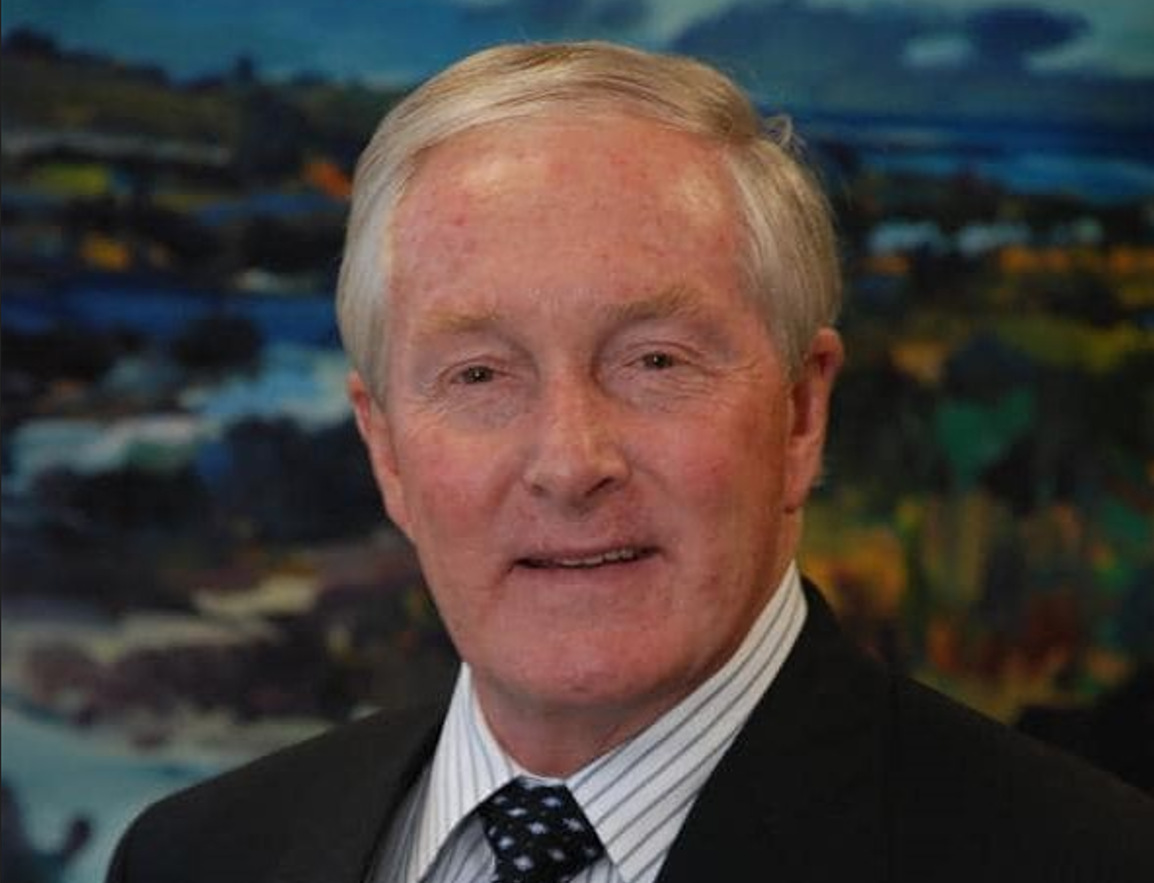There's a lot of chatter these days about very wealthy people, their properties, and how they live. It’s a topic that, you know, really gets folks talking, especially when you consider places like those incredibly tall buildings in New York City, where some of the world's most affluent individuals have made their homes. The sheer scale of wealth concentrated in certain spots, like a particular row of grand buildings, often sparks a lot of conversation and, too it's almost, a bit of curiosity about who these people are and what their lives might be like.
People often wonder about the properties these individuals acquire, like the famous 220 Central Park South, which many consider a real landmark in that part of the city. Then there’s another building, number 200, where, apparently, a group of nine apartments were held by one owner. This kind of ownership, where someone might have so many separate living spaces within a single structure, is that something we truly grasp? It certainly paints a picture of substantial holdings and, in a way, hints at a lifestyle quite different from what most people experience.
Beyond just the real estate, there's also a broader discussion happening, perhaps online, about the nature of immense personal fortunes and the people who possess them. It touches on feelings about fairness, about how much one person truly needs, and about the influence these individuals might have on larger matters. We see these conversations pop up in various places, where folks are just trying to make sense of it all, and trying to figure out what it all means for everyone else, still.
Table of Contents
- What Makes a Place a "Billionaires' Hub"?
- How Do People See These Wealthy Individuals?
- Owning Many Homes - Is That Common for Billionaires?
- What About Disagreement Among the Rich?
- The Influence of Hidden Funds - Where Does It Come From?
- The Cost of Living in Certain Areas
- The Online Conversation About Billionaires
- What Kind of Prizes Get Given Out on Forums?
What Makes a Place a "Billionaires' Hub"?
When we talk about spots where a lot of very rich people tend to gather, places like "billionaires row" in New York City often come up. It's a collection of buildings that, you know, are really quite grand, and they stand out in the city's skyline. One of the places people really talk about in this area is 220 Central Park South. It’s a building that has become pretty well-known, and for good reason. It represents a particular kind of very high-end living, the sort that only a very select group of people can manage, apparently.
Then there's another building, number 200, which also gets a mention. It seems that in this particular structure, someone held title to nine separate living spaces. Think about that for a moment: nine apartments, all within one building, belonging to a single individual or entity. That’s a considerable amount of property, and it suggests a level of financial capacity that is, quite frankly, difficult for many to even imagine. It brings up questions about why someone might want so many homes, and what it means to have such a large footprint in a place like that. It’s a very interesting point to consider, really.
These places, with their towering heights and their very exclusive feel, become symbols in a way. They stand for immense personal wealth and, perhaps, a certain kind of separation from everyday life. The sheer number of properties one person might possess in these areas, like the nine apartments in building 200, paints a picture of resources that are almost beyond everyday experience. It’s a visual representation of how concentrated wealth can become in specific urban pockets, and it certainly makes you think about the economics of it all, too it's almost.
- Jungkook Height
- World Razer Eaglemoss
- Start Of School Year And End Of School Year Cartoon
- Ray Brothers Bbq Bouckville Ny
- Waffles Mlp Cute
How Do People See These Wealthy Individuals?
There's a lot of conversation that happens, sometimes on online message boards, about people who have amassed vast fortunes. One person, for instance, mentioned finding it a bit tough to grasp the idea of individuals who seem to complain a lot and feel they deserve things, especially when they possess six or twelve houses. This sentiment is something that, you know, many people might share. It brings up questions about how we view those with immense resources, and what expectations we might have of them, or perhaps, what expectations they might have of the world around them, still.
The idea of someone owning so many homes, while others struggle to find one, can certainly spark strong feelings. It leads to discussions about whether these individuals, even with all their money, truly understand the experiences of others. There's a curiosity about their outlook on life, and how it might be shaped by their circumstances. It's a topic that often leads to people asking, "Who do you agree with more?" when presented with different viewpoints on wealth and responsibility. This suggests a desire to align with a particular perspective on how the very rich should behave or be perceived, in a way.
These discussions highlight a broader societal interest in the lives of the very wealthy, perhaps even someone like a hypothetical "billionaires Alexander," and how their actions or perceived attitudes fit into the larger social fabric. It's not just about the money itself, but about the impact of that money, and the personality traits that might go along with having so much. People are often trying to figure out if there's a common thread among these individuals, or if each one is just a little bit different, really.
Owning Many Homes - Is That Common for Billionaires?
The idea of someone having a collection of homes, perhaps six or even twelve different places to live, is certainly something that captures attention. It’s a concept that, you know, makes many people pause and consider. For the vast majority of folks, owning even one home is a significant achievement, so the thought of having multiple residences, spread out across different locations, seems quite extraordinary. It raises questions about the practicalities of it all, like how one manages so many properties, and what purpose each one serves. It's a very different way of living, to be honest.
When we hear about individuals with such extensive property portfolios, it prompts a discussion about whether this is a common practice among the extremely wealthy, or if it's more of an outlier situation. Is it typical for someone with billions to have a string of houses, or is it just a few particular individuals who choose this lifestyle? It suggests a level of freedom and mobility that most people can only dream of, where you can simply pick up and move to a different residence whenever the mood strikes. This kind of flexibility is, in a way, a hallmark of immense financial capacity, apparently.
The sheer number of homes can also bring up conversations about the distribution of resources. If one person holds title to so many living spaces, what does that mean for the housing market, or for the availability of homes for others? It’s a complex issue, and people tend to have strong feelings about it. The discussion isn't just about the personal choice of the individual, but about the broader implications of such concentrated ownership. It makes you wonder about the bigger picture, and how these individual decisions might affect communities, too it's almost.
What About Disagreement Among the Rich?
It's interesting to consider whether the discussions about wealth and power apply to all people with vast fortunes, or just to those who might hold different views from someone else in a position of influence, like a billionaire in a very prominent public role. This question highlights the idea that even among the very rich, there can be different ways of thinking and different outlooks on how things should be done. It’s not a single, unified group, but rather, a collection of individuals with their own beliefs and approaches, in a way.
The idea of one wealthy person having different thoughts from another, especially when one holds a significant public office, is something that often comes up in conversation. It suggests that even within the highest echelons of wealth, there are varying perspectives on political matters, economic policies, and social issues. This kind of internal disagreement among the very rich can be quite telling, as it shows that money doesn't necessarily create a single, shared viewpoint. It’s a reminder that individuals, regardless of their financial standing, can have their own distinct ideas, basically.
This dynamic, where people of great wealth might see things differently from each other, can influence public discourse and even policy. It makes you think about the various forces at play in society, and how different powerful voices might compete or collaborate. The question of who you agree with more, when faced with these differing outlooks, really puts the spotlight on personal values and beliefs. It's about aligning with a particular way of thinking, even when both sides come from a place of considerable financial strength, you know.
The Influence of Hidden Funds - Where Does It Come From?
There's a notion that some significant events or movements are put together with a lot of planning and teamwork, often involving funds that come from sources that aren't immediately clear. This idea of "dark money" is something that often gets talked about, especially when people are trying to understand the forces behind certain public actions or campaigns. It suggests that there are financial contributions whose origins are not transparent, and that these contributions can have a considerable impact on various outcomes, apparently.
The discussion around these hidden funds often points to a significant portion of them having their start with individuals who possess immense personal wealth. This means that people with billions might be contributing to causes or efforts in ways that are not easily traceable by the public. It raises questions about accountability and transparency, and about the extent to which these financial flows influence political landscapes or public opinion. It’s a topic that, you know, can spark a lot of debate and concern among those who value openness in financial dealings, still.
When funds are arranged very carefully and their source is obscured, it can make it difficult to fully grasp the motivations or objectives behind certain initiatives. The idea that much of this money comes from billionaires adds another layer to the discussion, as it connects the power of personal fortunes to broader societal movements. It makes you wonder about the specific aims of these contributions, and how they might shape events without direct public knowledge. It’s a very complex aspect of how wealth can exert its influence, in a way.
The Cost of Living in Certain Areas
When we consider places like Woodstock, New York, we get a glimpse into what it costs to live in different parts of the country. The average prices for homes in 2023 were noted as being around $684,431, and the typical rent for a place in that same year was also quite substantial. These figures give us a sense of the economic environment in various communities, and how different areas compare in terms of affordability. It’s a good way to understand the financial realities for people living in these spots, basically.
The December 2024 cost of living index in such areas also provides a measure of how expensive it is to maintain a household there. This kind of data helps to paint a picture of the economic pressures and opportunities in different regions. While not directly about the properties of billionaires, understanding the general cost of living in various places helps to frame the broader economic context in which immense wealth exists. It shows that, you know, even outside of the most exclusive "billionaires row" areas, living expenses can be quite considerable, really.
These economic details, like the mean home prices and median gross rent, offer a practical perspective on daily life for many people. They contrast sharply with the scale of wealth discussed earlier, where individuals might own multiple properties worth millions. It highlights the vast differences in financial experience across different segments of society. It's a reminder that while some individuals operate on a scale of billions, most people are concerned with much more immediate and practical financial considerations, in a way.
The Online Conversation About Billionaires
Online message boards and forums often become places where people gather to talk about a wide range of topics, and the subject of wealthy individuals is certainly one that comes up quite often. These platforms provide a space for folks to share their thoughts, ask questions, and engage in discussions about various aspects of life, including how immense personal fortunes fit into the picture. It’s a way for people to connect and explore ideas together, and, you know, to hear different viewpoints on things that matter to them, still.
The availability of these forums, where it's free and quick to sign up, means that many people can join in the conversation. It creates a community where individuals can express their opinions, perhaps about the concept of "billionaires Alexander" or just about wealth in general, and engage with others who might have similar or differing perspectives. The ease of access helps to foster a lively exchange of ideas, allowing a broad spectrum of voices to contribute to ongoing discussions about wealth, power, and societal impact. It’s a very open kind of space, apparently.
These online spaces are where you might see someone struggling to make sense of the idea that people with vast resources might also be seen as complaining a lot or feeling they deserve things. It’s where questions like "Who do you agree with more?" get posed, inviting others to weigh in on complex issues. The very nature of these platforms means that a lot of different thoughts and feelings about the wealthy, and their role in the world, get aired out for everyone to see and respond to. It’s a pretty direct way to gauge public sentiment, in a way.
What Kind of Prizes Get Given Out on Forums?
It's interesting to note that on some of these very popular online message boards, there’s a system where active participants can receive rewards. For example, over $68,000 in prizes has already been given out to people who regularly contribute to the discussions. This kind of incentive system helps to keep the community engaged and encourages people to share their thoughts and knowledge. It’s a way of recognizing the value that members bring to the platform, and, you know, it adds a fun element to being part of the group, really.
The idea of giving out prizes for active participation suggests that these online communities value contributions and interaction. It creates a positive feedback loop, where people are motivated to keep sharing their insights and engaging with others. This kind of system can help to build a strong and vibrant community, as members feel appreciated for their efforts. It’s a pretty smart way to foster continued involvement and discussion, especially on topics that might be as engaging as the lives of the very wealthy, or, you know, even just general everyday matters, basically.
These rewards, whether they are small tokens or more substantial prizes, play a part in shaping the culture of an online forum. They help to make the experience more enjoyable and encourage people to spend time contributing to the collective conversation. It shows that there’s a tangible benefit to being an active member, beyond just the satisfaction of sharing ideas. It's a good example of how platforms try to keep their users happy and involved, and it certainly works to keep people coming back, too it's almost.


